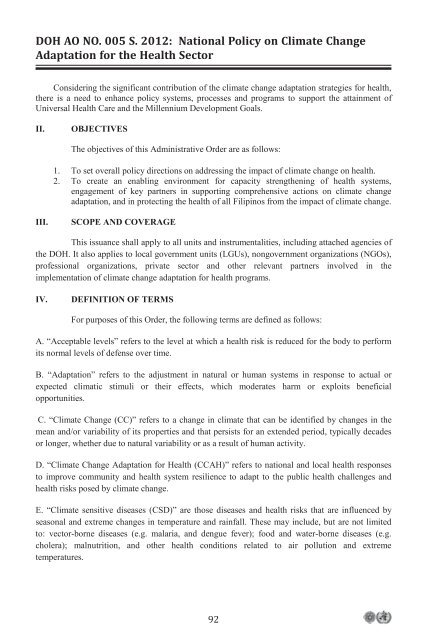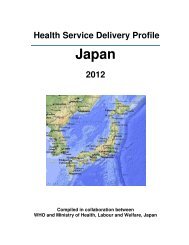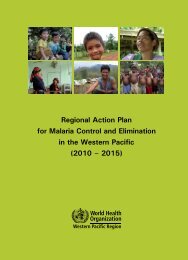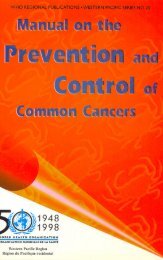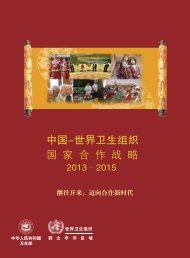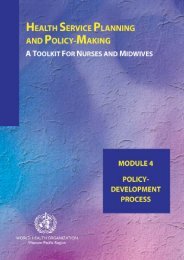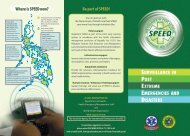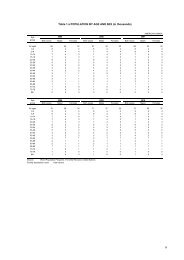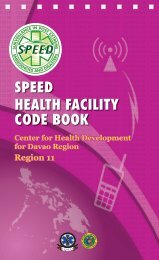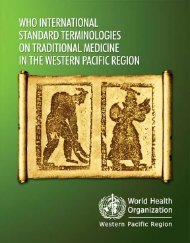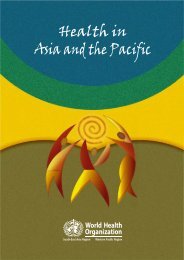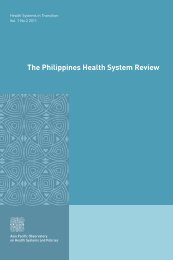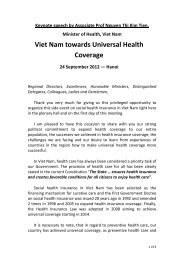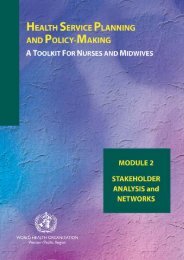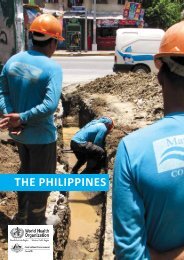Untitled - DOH
Untitled - DOH
Untitled - DOH
- No tags were found...
Create successful ePaper yourself
Turn your PDF publications into a flip-book with our unique Google optimized e-Paper software.
<strong>DOH</strong> AO NO. 005 S. 2012: National Policy on Climate ChangeAdaptation for the Health SectorPolicy HandbookConsidering the significant contribution of the climate change adaptation strategies for health,there is a need to enhance policy systems, processes and programs to support the attainment ofUniversal Health Care and the Millennium Development Goals.II.OBJECTIVESThe objectives of this Administrative Order are as follows:1. To set overall policy directions on addressing the impact of climate change on health.2. To create an enabling environment for capacity strengthening of health systems,engagement of key partners in supporting comprehensive actions on climate changeadaptation, and in protecting the health of all Filipinos from the impact of climate change.III.SCOPE AND COVERAGEThis issuance shall apply to all units and instrumentalities, including attached agencies ofthe <strong>DOH</strong>. It also applies to local government units (LGUs), nongovernment organizations (NGOs),professional organizations, private sector and other relevant partners involved in theimplementation of climate change adaptation for health programs.IV.DEFINITION OF TERMSFor purposes of this Order, the following terms are defined as follows:A. “Acceptable levels” refers to the level at which a health risk is reduced for the body to performits normal levels of defense over time.B. “Adaptation” refers to the adjustment in natural or human systems in response to actual orexpected climatic stimuli or their effects, which moderates harm or exploits beneficialopportunities.C. “Climate Change (CC)” refers to a change in climate that can be identified by changes in themean and/or variability of its properties and that persists for an extended period, typically decadesor longer, whether due to natural variability or as a result of human activity.D. “Climate Change Adaptation for Health (CCAH)” refers to national and local health responsesto improve community and health system resilience to adapt to the public health challenges andhealth risks posed by climate change.E. “Climate sensitive diseases (CSD)” are those diseases and health risks that are influenced byseasonal and extreme changes in temperature and rainfall. These may include, but are not limitedto: vector-borne diseases (e.g. malaria, and dengue fever); food and water-borne diseases (e.g.cholera); malnutrition, and other health conditions related to air pollution and extremetemperatures.10292


